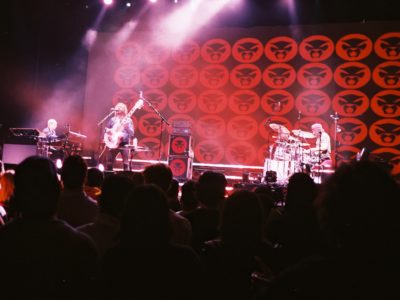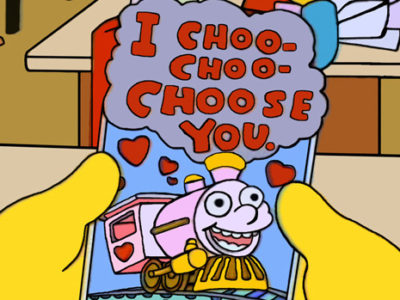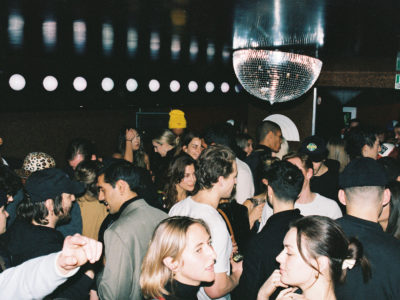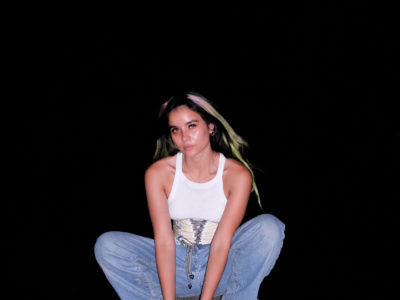
Pink Room Project has New Orleans on the lookout
Pink Room Project has New Orleans on the lookout
WORDS BY : JON CRONEY | PHOTOS BY : ALEX SMITH
Think pink in the Big Easy...
“We are the future sound”, says Brandon Ares, artist and co-founder of Pink Room Project, a New Orleans D.I.Y. collective whose “Hotline” parties have been credited for redefining the city’s musical legacy. Starting out in the living room of a shotgun home (aka. The Pink Room), the collective – currently made up of DJs, artists, producers, and creatives including Lil Jodeci, riq50, Quick Weave, Yves, Free Trial, and Ares himself – have since become known for their signature blend of early Detroit House, Rock & Roll, Bounce, Hip-Hop and R&B. “At the start, we made this new sound, and then we created a scene around it so that the music could be heard,” explains Ares. “Now it’s more like the nightlife that we created really inspires the music. It all came back full circle.” With aspirations to expand beyond NOLA to find their place on the world stage, we caught up with Ares, to discover how Pink Room Project is transforming the musical landscape, one dance party at a time.
New Orleans has a rich and storied musical history. What were your experiences of music growing up in New Orleans? In what ways has New Orleans inspired the sound, style, and vision of The Pink Room?
With New Orleans changing progressively for better or worse, Lil Jodeci and I had a mission to make our cultural stamp on the city. We are from New Orleans, and we are the future sound of the city – not transplants taking advantage of the culture. There’s a lot of that, and we want to keep that shit in check, not only for New Orleans but for the world. People are looking for what’s next everywhere and I believe that this is it. Blues, Rock and Roll, and Bounce, it all comes from here. New Orleans is the last place of culture in the USA.
You refer to yourselves as a “DIY Collective”. What do you mean by that?
We put together experiences, creating a world for our music to exist and be understood. We throw parties in abandoned places and venues that aren’t typically used for events. We also build things – for example, we designed a stage for Buku Festival. My project was fully produced and recorded in The Pink Room, which is just a living room. From recording vocals on the iPhone to sampling vibrators, we did whatever it took to get the job done.
You are well known for your New Orleans Hotline parties. What was the catalyst that led you to start throwing these parties in the first-place?
I chose to start doing Hotline parties after being inspired by conversation I had with my friend Jake. He told us about some parties overseas where you could go two or three stories underground, and how they were really an escape for the community. Our events are a lot like that – we wanted to push our community and challenge people. At the time, every venue we had played took advantage of us, so we wanted to take the power back into our own hands. To come to our parties, you would have to text a number, then a few hours before the event would actually start you would receive back the address. This was a way for us to keep the people of the city detached from the noise and get excited about going somewhere again – to ask themselves who’s gonna be there or where’s it gonna be? To give people back that sense of ambiguity and wonder. I knew it would work but I didn’t expect so many people to come. For our first party we had almost 300 people show up to this empty house on the corner.
Since founding the Pink Room Project, how has the original concept evolved?
Originally, the Pink Room was a collective of New Orleans born and raised creatives that could compete with those on the world stage. Since then, the nightlife aspect has really taken a life of its own. At the start, we made this new sound and then we created a scene around it so that the music could be heard. Now it’s more like the nightlife that we created really inspires the music. It all came back full circle.
Pink Radio showcases new and emerging musical talent – who are the artists that currently inspire you?
Everyone right now in Pink Room is what I listen to more than anything: Quick Weave, Kilobauud, and Oddasey 97. Outside of them it’s Oneohtrix Point Never, Yves Tumor, Lucki Ecks, and Mall Grab. Recently, I’ve been listening to a lot of Kenna, Apex Twin and Aux88. The Psychedelic Furs has been inspiration for new music I’ve been making and Frank Ocean is a big one for me too.
Your sound has been described as “ambiguous” – fusing multiple genres. Why do you feel it’s so important to blend genres?
Transcendence. We are living in a future where everything is moving at hyper speed, all crashing into each other to become one. I want my music to retain inclusiveness and push acceptance of everything and everyone.







